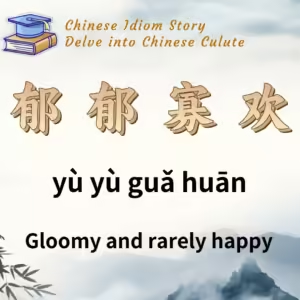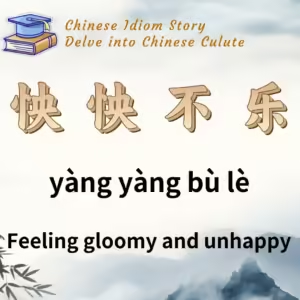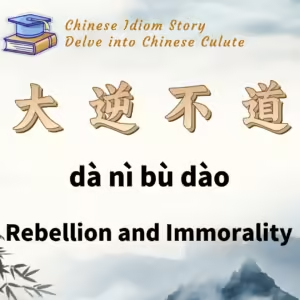
Chinese Idiom: 郁郁寡欢 (Yu Yu Gua Huan)
English Translation: Gloomy and rarely happy
pīn yīn: yù yù guǎ huān
Idiom Meaning: This idiom describes a state of feeling depressed, troubled, and lacking joy. It conveys a sense of melancholy and unhappiness.
Historical Source: The Songs of Chu (《楚辞·九章 · 抽思》).
Idiom Story:
The Nine Chapters (九章) is a collection of nine poems attributed to the poet Qu Yuan, one of the most significant figures in ancient Chinese literature. These poems include Xi Song, She Jiang, Ai Ying, Chou Si, Huai Sha, Si Mei Ren, Xi Wang Ri, Ju Song, and Bei Hui Feng. While these works are traditionally linked to Qu Yuan, the compilation itself was assembled by later scholars, including Song Dynasty scholar Zhu Xi.
The poem Chou Si is believed to have been composed during Qu Yuan’s later years when he was forced to leave the political center of his home state of Chu, specifically the city of Ying. In this poem, Qu Yuan poignantly expresses his deep longing for Ying and his sorrow at having to leave.
The opening lines of the poem encapsulate his despair:
心郁郁之忧思兮,独永叹乎增伤。
思蹇产之不释兮,曼遭夜之方长。
Translation:
- “My heart is heavy with sorrow; I sigh deeply, which only increases my grief.”
- “My thoughts are tangled and cannot be released, and I must endure the long, endless night.”
In these lines, Qu Yuan reflects on his emotional turmoil, the relentless worries that plague his mind, and the deepening sadness that accompanies his isolation. This sense of gloom and melancholy resonated with readers and was distilled into the idiom “郁郁寡欢,” which encapsulates the feelings of being troubled and unhappy.
Over time, “郁郁寡欢” has come to symbolize not just individual sorrow but a more universal experience of melancholy and emotional heaviness in the face of life’s challenges.






